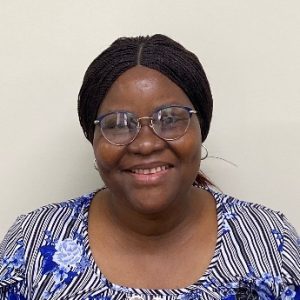Top COVID-19 Scams for the Elderly to Avoid
Unfortunately, in the midst of a global crisis caused by the novel coronavirus, many scammers have found an opportunity to target the elderly community. The home care professionals at Avila Home Care want you to stay proactive about protecting yourself from hackers, scammers and other threats. Here are a few of the top COVID-19 scams to look out for as well as tips for protecting yourself and your sensitive information.
Robocalls
HANG UP RIGHT AWAY! Scammers or scammy companies use illegal robocalls to profit from Coronavirus related fears posing as the IRS or Medicare. Even if you don’t say anything, or if they ask you if your name is “INSERT NAME”, and you respond “YES”- they can still use that to charge you money or take advantage of your identity in other ways. Visit the Federal Trade Commission’s website to hear scam calls.
Testing and Treatment Scams
DON’T ANSWER THE DOOR! Scammers are calling or knocking on doors in white lab coats or hazmat gear claiming to be with the Center for Disease Control and Prevention, selling fake at-home Coronavirus tests, fake cures, vaccines, and medical advice on unproven treatments.
Supply Scams
BE VERY CAREFUL WHERE YOU BUY FROM ONLINE! Scammers are creating fake shops, websites, social media accounts, and email addresses to sell medical supplies in high demand, like surgical masks. When you try to purchase supplies, they pocket the money.
Provider Scams
DO NOT PAY BILLS FROM SOURCES YOU DON’T KNOW. Scammers are contacting people by phone and email, pretending to be doctors and hospitals that have treated a friend or family member for COVID-19 and demanding payment.
Charity Scams
ONLY DONATE TO ESTABLISHED CHARITIES YOU HAVE HEARD OF WITH A GOOD REPUTATION. Scammers are soliciting donations for individuals, groups, and areas impacted by coronavirus.
Phishing Scams
DO NOT OPEN EMAILS YOU DON’T RECOGNIZE,OR ENTER IN PERSONAL IDENTIFICATION OR FINANCIAL INFORMATION! Scammers are sending emails posing as health officials, including the World Health Organization and Centers for Disease Control and Prevention, attempting to trick you into downloading malware or providing personal identification and financial information.
App Scams
DO NOT DOWNLOAD APPS YOU DON’T RECOGNIZE. Scammers are creating and controlling mobile apps used to track the spread of COVID-19. If used, these apps insert malware on your device that steals your personal and financial information.
Compassion & Romance Scams
AVOID FRIEND OR ROMANTIC SOLICITATIONS. Scammers will use this opportunity to prey on your vulnerability while you are contained and isolated in your home, developing a friendship or romantic relationship with you to gain your trust and obtain your personal and financial information.
Tips for Protecting Yourself From Scams
- Do not respond to calls or texts from unknown numbers, or any others that appear suspicious.
- Never share your personal or financial information via email, text messages, or phone.
- Be cautious if you’re being pressured to share information or make payments immediately.
- Scammers often spoof phone numbers to trick you into answering.
- Government agencies will never call you to ask for personal information or money.
- Do not click links in text messages. If a friend sends you a text with a suspicious link, call them to make sure they weren’t hacked.
- Always check on a charity (by calling or looking at its actual website) before donating.
Speak to a Dedicated Home Care Professional at Avila Home Care
While the compassionate team at Avila Home Care wants to ensure you and your loved one stay healthy during this global pandemic, we also want to make sure you stay safe and that your assets and personal information are not stolen, exploited or shared via scammers taking advantage of current events. To speak to an Avila Home Care specialist, contact our offices today.
Content in this article was sourced from AxisCare. To read the full article, click here.
What Seniors Should Know About Voting
Voting is an important right in the United States that should be exercised by all who have it. Due to various factors that come with age, some seniors may perceive voting to be difficult. Here, the home care providers at Avila Home Care provide solutions to potential voting concerns to help ensure seniors are able…
Read More...Rachael Davies is Avila’s Caregiver of the Month for December, 2023!
Avila Home Care is grateful to our December 2023 Caregiver of the Month, Rachael Davies! A recent client shared: “I want to tell you how much of a Godsend Rachael Davies has been- a completely devoted caregiver. She goes WAY above and beyond with all duties, and also shows compassion and care all day, every day.…
Read More...Avila’s Partnership with Gilchrist, LifeBridge Health Partners and GBMC Healthcare
Avila Home Care’s partnership with Gilchrist, LifeBridge Health Partners and GBMC Healthcare allows our clients to have streamlined access to the services of these leading medical institutions, while providing our Partners’ patients with a continuum of care in the safety and comfort of whatever setting they call home. Of the partnership, Cathy Hamel, President of…
Read More...

